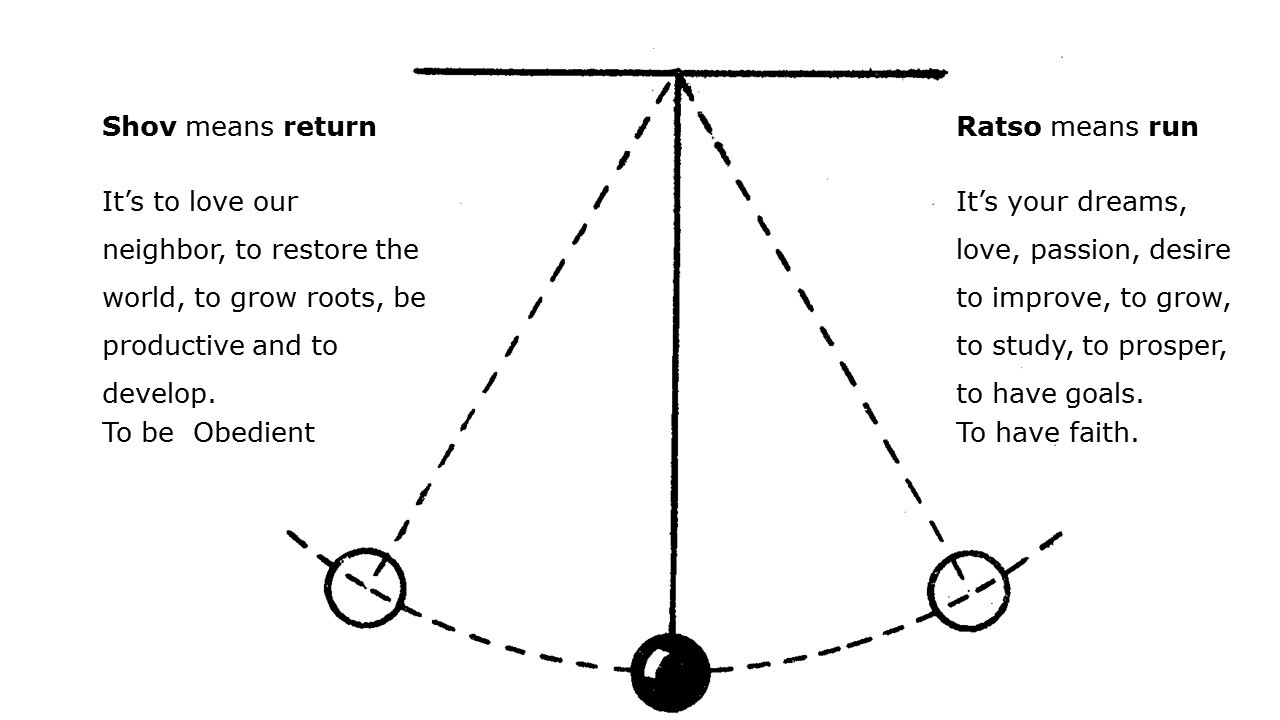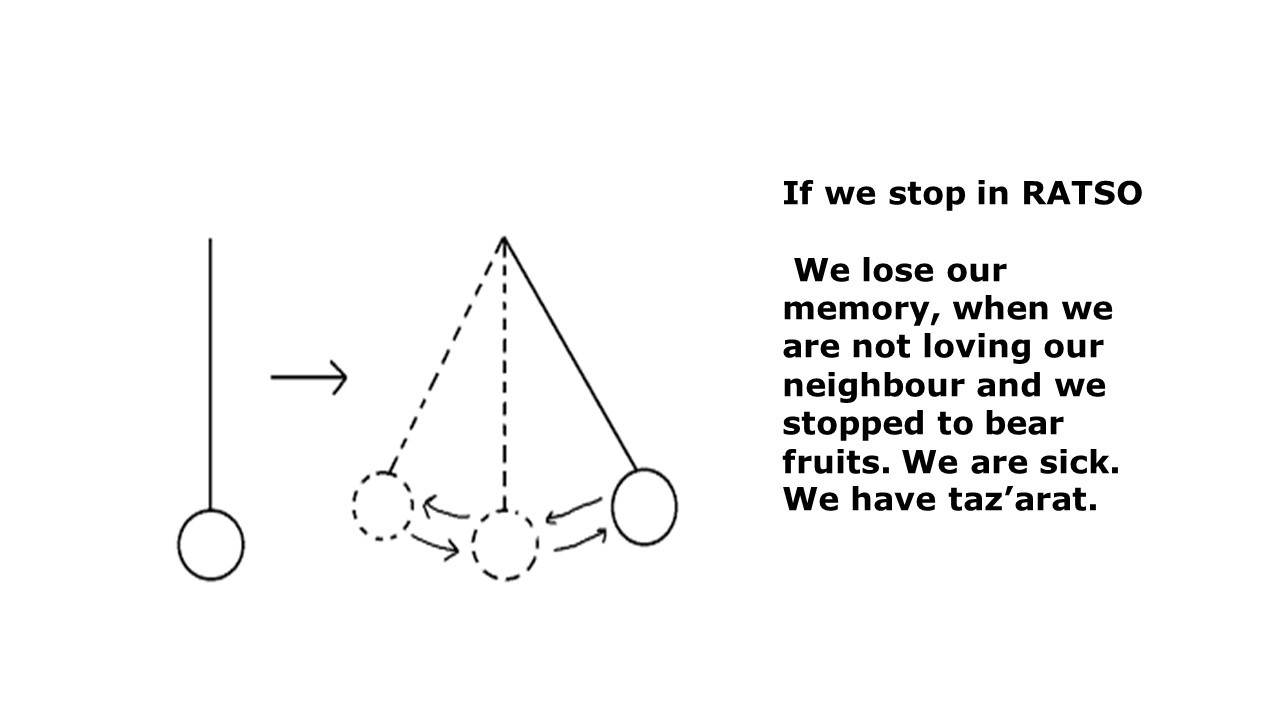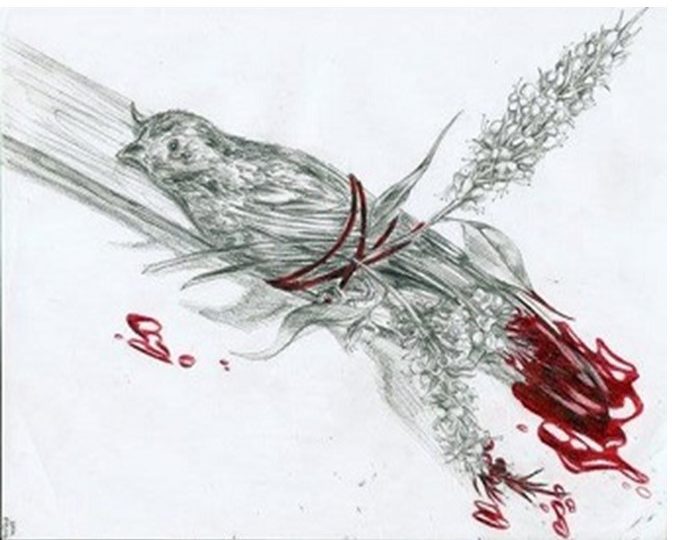Today is going to be a bible study about the book of Leviticus.
You can read about it in chapter 13 and 14 of Leviticus.
Today I want to share about the leper. It is a skin disease. But in the Bible, it more than that. The word for leprosy in Hebrew is tza’arat.
Tza’arat (“to have a skin disease.”) is about taking what is unseen and inside a person and making it visible.
It’s a person in the process of having what is inside brought to the surface or their skin.
But as we’ll see, this external condition is really a sign of an internal moral condition.
The biblical treatment of tza’arat was complete isolation: the person was to live outside the camp, cloak himself up (cover) to his lips, and cry out, “Unclean, unclean!” And nobody was allowed to get close to them.
The NIV Study Bible notes that the notion of infectious disease was unknown back then.
It doesn’t describe the disease known today as leprosy, technically called Hansen’s disease.
- First of all, the symptoms described here–with much emphasis on small white patches-simply do not correspond to any symptoms of Hansen’s disease.
- Secondly, in Torah the priest inspects the affected skin after a week, but Hansen’s disease progresses much too slowly to see a difference in a week.
- Thirdly, in the Bible has a very strange prescription for a total outbreak of tzara’at:
Numerus 13.13 “The priest is to examine him, and if the disease has covered his whole body, he shall pronounce that person clean. Since it has all turned white, he is clean.”
That’s a pretty amazing paradox: if a person is totally covered, then he is totally clean!
Now this certainly makes little medical sense, right?
Yet it is actually a hint about the spiritual nature of the problem.
Are you curious to learn more about that?
The ancient Rabbis argued that tzara’at refers not to a bodily disease but to a physical manifestation of a spiritual illness , a punishment designed to show a malefactor that he must mend his ways.
In other words, tzara’at is not so much a disease but a form of supernatural spiritual discipline.
The biblical treatment of tzara’at was complete isolation: the person was to live outside the camp, cloak himself up to his lips, and cry out, “Unclean, unclean.
That’s just about the most extreme form of social exclusion I could imagine!
We see in the Bible all the explanation about leprosy in the book of Leviticus.
And the in Numbers 12. 1-16 we see Miriam, Moses’s sister when she spoke against Moses is God’s spokesman, she was struck with taz’arat (leper).
Moses was a humble man. Nm 12.3
Now the man Moses was very humble, more than all men who were on the face of the earth.
But Miriam was the opposite in this instance (bitterly prideful). She was struck with tza’arat. Aaron immediately cries out:
Please do not let her be as one dead, whose flesh is half consumed when he comes out of his mother’s womb!
Numbers 12:12
12 Do not let her be like a stillborn infant (like abortion) coming from its mother’s womb with its flesh half eaten away.”
Moses also pleads for Miriam, and after seven days she is clean and permitted back into the camp.
This happen because she was unhappy with Moses, he was always receiving everything from God and she want the same, she was jealous and bitter, she wanted to have the same intimacy with God. But God said you have a different ministry and you have to be happy with what you were call to do.
From these and other instances, the Sages derived their position that internal bitterness, expressed often by bitter words against a brother, is the source of tza’arat. It is an interesting position. When one examines the instructions for being removed from the community and then returning to the community, it does seem to indicate that tza’arat provides a time for “what is inside” to get out.
I do believe that this disease was a way for the person to have a time to reflect about what was going on, in their lives. Reflecting in their way of speaking and relating with one another. That is why gossip and complaining against a brother is so strongly spoken against in the Bible.
Into the Apostolic Scriptures, New Testament, will reveal the same seriousness regarding bitterness and evil-speaking against one another. Apparently, we all need a little caution before we “share a prayer request” about a brother or sister in Christ. Be careful when you share something to others about a brother and justify saying- It’s just for you to pray for. Why are you sharing something that was asked to no to be shared? Why are passing on information to others?
To illustrate it, I want to share a way of thinking in the Jewish culture.
When we learn about the Jewish culture, we can understand better the Bible, because the Bible comes from them.
They say that there is two opposite power that drives the human soul.
Shov and Ratso
We need to live on both sides.
Shov means return and Ratso means run
Shov – it’s the soul sober to return and fulfil its mission in the body to resolve to live within in the context of material reality base on the awareness that this is the God ultimate intent. It’s the desire to serve your community with your gifts.
Its love your neighbor, restore the world, grow roots, be productive, to develop, you want to grow.
To do it, to accomplish our dreams, we need to have roots, also we need to remember where we come from, our past. When we know where we come from, we will value what we are accomplishing.
I will only give value for what I have when I remember where I come from. We were created to bear fruits.
The people of Israel celebrate every year the Passover to remember that they were slaves and that God set them free. They understand that they have a calling to bless others.
If you understand that you came from a very poor family and now you have much more, you are going to give value in what you have.
The people of Israel have this understand before they were slaves in Egypt now, they have their own land. And they don’t want to keep this to themselves, and they want to bless others. We can see that is so true in their culture. When we look in the people to win the noble prize we see a lot of Jewish people. Because they have this passion to produce and to bless others. Is always returning to your roots remembering from where you come from. Shov talks about being obedient.
The other side is
Ratzo- it is a state of longing, to cleave to God, the passionate desire of the soul to transcend its material existence, to run forward and cleave to its source.
It’s your dreams, love, passion, desire to improve, to grow, to study, to prosper, to have goals.
It’s when you have faith and trust in God to keep going. It is to preach the gospel, to tell others the good news, that the kingdom is near.
God created us to have dreams and to accomplish them.
You were not created just to survive but to live a life with plans and projects.
For those who want a healthy soul, a balanced life, they need to swing between on side and the other, go back and forth, the swings of the pendulum are important.
We need to dream- run after those dreams, but we also need to be fruitful, to belong, to build.
I need to remember that this saying is not for those how to love God.
The end justifies the means
That is not true.
THE END DOES NOT JUSTIFY THE MEANS.
I can’t be proud, superior to others. The person that is guided by his desires only is someone who stopped in the Ratso. His pendulum is not working any more.
They become a soul, a person driven by his passions, that only value herself, that is what the Bible call Tza’rat, leper, we become a proud person. It is a person that lost his mind, does not have love for others and it’s not bearing fruits.
In the book of Leviticus, the person that has Tza’rat his skin become white and the hairs also. It means that they are no more sensitivity. They don’t care about anything anymore.
The scholars say seven reasons cause tza’rat (leper):
- Gossip
- Murder
- Perjury, giving false evidence, lying under oath.
- Forbidden sexual relationship
- Arrogance
- Theft
- Envy
As we can see all those attitudes, it shows a very unbalanced person. The ancient Rabbis argued that the inward cause tzara’at was sin, particularly anti-social sins, such as lying for selfish ends, sexual immorality, false oaths, pride, and especially slander( when we talk bad about others)
We find Jesus in agreement with the other Rabbis:
In Matthew 15:18-20
“18 The things that come out of the mouth come from the heart, and these make a man ‘unclean.’ 19 For out of the heart come evil thoughts, murder, adultery, sexual immorality, theft, false testimony, slander. 20 These are what make a man ‘unclean’.”
All these attitudes and behaviours make a person unclean.
Gossiping about others – it’s a way of not loving our neighbor, only caring for myself. When we lose our memory and we stop bearing fruits we are having tzara’at. 
We need to understand in the Bible sin means that we are separate from God, we are unclean, impure. We can’t come close to him. And to be purified, in the biblical times. The person needs to go to the temple and make sacrifices. Back in that time people were clean, through the blood of an animal, it could be an ox, a sheep, a goat or a bird and also water were used to purify them. Sometimes we don’t get the full meaning because we don’t have the understating. When Jesus was talking, he was talking to people who understand the old testament, specially the book of Leviticus. They knew this book by heart.
In Mt 5.21 says that our offer will not be accepted if we are not well with our brothers. Do you know why?
Let’s read: Mt 5.21-24
21 “You have heard that it was said to the people long ago, ‘You shall not murder,[a] and anyone who murders will be subject to judgment.’
22 But I tell you that anyone who is angry with a brother or sister[b][c] will be subject to judgment. Again, anyone who says to a brother or sister, ‘Raca, is answerable to the court. And anyone who says, ‘You fool!’ will be in danger of the fire of hell.
23 “Therefore, if you are offering your gift at the altar and there remember that your brother or sister has something against you,
24 leave your gift there in front of the altar. First go and be reconciled to them; then come and offer your gift.
We see her Jesus telling us , if you want offer something to God but if the relationship between you and your brother is not okay don’t keep doing what you planned to do. Don’t offer to God your offer. He is not going to accept. You need to reconcile first with your brother. This is related to what I have been talking.
When we are sinning against our brother, we are not close to God anymore, we became unclean. We are having leper. Then our prayers, offers cannot be accepted, because we are not having a good relationship with the person beside us.
God was very clear about this in the book of Leviticus.
Let’s have a look in Lev 19. 11-18
11 “‘Do not steal.
“‘Do not lie.
“‘Do not deceive one another.
12 “‘Do not swear falsely by my name and so profane the name of your God. I am the Lord.
13 “‘Do not defraud or rob your neighbour.
“‘Do not hold back the wages of a hired worker overnight.
14 “‘Do not curse the deaf or put a stumbling block in front of the blind but fear your God. I am the Lord.
15 “‘Do not pervert justice; do not show partiality to the poor or favouritism to the great but judge your neighbour fairly.
16 “‘Do not go about spreading slander among your people.
“‘Do not do anything that endangers your neighbour’s life. I am the Lord.
17 “‘Do not hate a fellow Israelite in your heart. Rebuke your neighbour frankly so you will not share in their guilt.
18 “‘Do not seek revenge or bear a grudge against anyone among your people but love your neighbour as yourself. I am the Lord.
Talking out the verse 17. Sometimes we became angry with someone because they said something that we don’t like , but here the Bible is saying to us if you are not happy don’t keep it in your heart , go back and talk about it with the person. Don’t talk to a third person. Doing that you are not fixing the problem; you are just make it grow. Lev 19.17 explain Mat 5. 21-24. We want to offer things to God, but we are not in a good relationship with our brothers and sisters, we are talking bad about them in their back. We don’t solve problems; we don’t sit to talk. We just go with our lives and we don’t face the situation. And we are just bringing upon our lives this curse. And we need to understand that God is calling us to fix the relationships between brothers and sisters, husbands and wives, sons and daughters, mothers and sons. God wants to heal our relationships, and we need to take care of that.
To keep the balance and not become a person full of sin, that leaves only in the Ratso, we need to work in our relationships.
That is why Paul said for us in Eph 4. 25-27
25 Therefore each of you must put off falsehood and speak truthfully to your neighbour, for we are all members of one body. 26 “In your anger do not sin: Do not let the sun go down while you are still angry, 27 and do not give the devil a foothold.
All that Paul and Jesus said is all in the book of Leviticus. There are just explain to us in a better way, but the message still the same. To love each other, respect each other. To not say false things about our neighbour, but always respect them.
Those who allow those attitudes in their life are far away from Gods propose. We need to repent; we need to be clean.
To finish, I would like to show you one very important point.
Do you know why those who had taz’arat (leper) had to be put aside?
Do you know what they must do to be clean again?
Tza’arat was an affliction that the unclean, with leprosy had to experience outside the community – essentially cut off from the people, but more importantly: cut off from the manifest Presence of God in the Temple. That is why the following account is so precious
Mt 8. 2-4
8 When Jesus came down from the mountainside, large crowds followed him. 2 A man with leprosy came and knelt before him and said, “Lord, if you are willing, you can make me clean.”
3 Jesus reached out his hand and touched the man. “I am willing,” he said. “Be clean!” Immediately he was cleansed of his leprosy. 4 Then Jesus said to him, “See that you don’t tell anyone. But go, show yourself to the priest and offer the gift Moses commanded, as a testimony to them.”
The unclean could not go into the Temple… so the “Temple” came to him. The “Leper Messiah” – One who heals and cares for those how had leper, those who are unclean.
We are supposed to hear Jesus words, “show yourself to the priest,” and automatically know that we are in a Leviticus 14 situation.
You will find that it is not the priest in Leviticus 14 that makes the leper “clean” – he only declares it to be so. God is the only one who can take away tza’arat and make one clean.
But notice in Leviticus 14:1-7
14 The Lord said to Moses, 2 “These are the regulations for any diseased person at the time of their ceremonial cleansing, when they are brought to the priest: 3 The priest is to go outside the camp and examine them. If they have been healed of their defiling skin disease, 4 the priest shall order that two live clean birds and some cedar wood, scarlet yarn and hyssop be brought for the person to be cleansed. 5 Then the priest shall order that one of the birds be killed over fresh water in a clay pot. 6 He is then to take the live bird and dip it, together with the cedar wood, the scarlet yarn and the hyssop, into the blood of the bird that was killed over the fresh water. 7 Seven times he shall sprinkle the one to be cleansed of the defiling disease, and then pronounce them clean. After that, he is to release the live bird in the open fields.
A seemingly odd way of declaring him clean. It involves:

- Two birds (one lives, and one was killed with its blood dripping into water).
- A cedar plank. (peace od wood)
- Some scarlet yarn.
- Some hyssop.
- An earthen jar. (clay pot)
- Running water.
Watch the process. One bird is killed over running water in an earthen jar. Its blood mixes with the water. The live bird is tied to a cedar plank with a scarlet yarn thread and dipped into the water with the blood. Sprinkle the person with leprosy seven times with the mixed water and blood and then set the live bird free in a field to fly away. Then the leper is declared “clean.”
What a wonderful picture of Jesus sacrifice. Can you see it?
That man was made clean by a touch from the Master’s hand.
How the Master laid down His life only a short later – water and blood coming from His side. How He was fastened to a plank which came from a tree that was meant to reflect life, but now held Him for death. How the scarlet thread of the blood trickled down His face. How the hyssop was used in applying the blood of the Passover lamb to the doorpost. How the hyssop held up the sour wine to the Master’s lips. How that same Master was raised three days later and “flew up” to Abba, the Father.
Reflect upon those things, beloved.
He did it for you. You were that unclean. You were afflicted with tza’arat. You were unclean and were rightfully excluded from His Presence. We are not in the balance that God call us to live. You were that proud one who spoke against God’s beloved. You were that one who had all the bitterness on the inside brought outside for all to see and recoil from.
But then the Master came. You could not reach out to Him, so He reached out – You are clean.
Thank Him for these passages in the Bible.
Pray for repentance and salvation.
